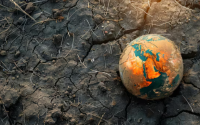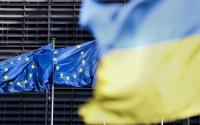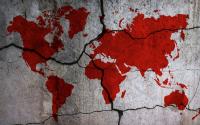 An Israeli artillery unit fires across the border into southern Lebanon. Photograph: Oded Balilty/AP An Israeli artillery unit fires across the border into southern Lebanon. Photograph: Oded Balilty/AP |
Up to 13 Israeli soldiers were killed and many more wounded yesterday in the southern Lebanese town of Bint Jbeil during the fiercest battle so far in the Middle East conflict. Nearby, in the village of Maroun el-Ras, which troops had entered at the weekend, an Israeli officer was reported killed.
Last night the city of Tyre was hit in a major Israeli air strike. Sixteen people, including six children, were injured when a seven-storey building that had been used as a Hizbullah community centre collapsed.
In Bint Jbeil, Israeli troops ran into large numbers of heavily armed Hizbullah fighters when they tried to sweep through the town, just two and a half miles from the Israeli border.
"We have got very intense fighting, house to house, room to room," a spokesman for the Israeli military said last night. He refused to give full casualty figures but said there were "many seriously injured Israelis". Reports put the number of dead and injured at 30.
Troops found a large cache of Hizbullah weapons, including rocket-propelled grenades, automatic assault rifles and ammunition. The spokesman said: "This indicates they were planning on holding out much longer." He said more than 200 Hizbullah fighters had been killed since the conflict began.
Israel's northern command chief said the offensive in Lebanon was still not nearing its end. "I assume it will continue for several more weeks and in a number of weeks we will be able to declare a victory," Major General Udi Adam said.
The heaviest fighting yesterday came as troops tried to capture an important hilltop at Bint Jbeil. Hizbullah said its fighters had ambushed an Israeli unit that was moving from a ridge towards the town. "Our men can hear the screams of their wounded calling for help," one Hizbullah source told Reuters.
Israeli troops had taken some areas in Bint Jbeil, but not the whole town. "The bodies of the soldiers remained on the ground amid the destroyed and burning vehicles," said an announcer on Hizbullah's television channel, al-Manar.
Many of the Israeli injured had to wait hours under heavy fire before they could be evacuated. Helicopters eventually flew them to hospital in Haifa.
"We knew well that we are entering a dangerous nest and the nest needs to be taken care of slowly," Major Tzvika Golan, an Israeli spokesman, told reporters.
Before the conflict erupted two weeks ago, Bint Jbeil was a small town of about 20,000 people but one regarded by Israeli commanders as symbolically crucial for Hizbullah. Its leader, the cleric Hassan Nasrullah, made an important speech in the town in 2000, shortly after the Israeli military withdrew from southern Lebanon. Israeli officers describe it as the "terror capital" and say it is an important logistics base for the militia.
But yesterday's fighting confirms an emerging sense within Israel that the ground battle is proving far tougher than expected. Before yesterday, 24 Israeli troops had been killed and 79 injured.
General Yiftah Ron-Tal, a former commander of Israeli land forces, told Israel Radio: "You can't fight a battle like that without taking losses. The question is whether the mission has been accomplished. We had no choice but to fight there. This kind of position can't be taken without using ground troops. The enemy is well trained and knows the terrain well."
One armoured brigade colonel told the Jerusalem Post that the operation to capture Bint Jbeil had been expected to last between 48 and 72 hours. It has now run for four days.
Early this morning Israel reportedly attacked a Lebanese army base at Aamchit, 30 miles north of Beirut. It was not clear whether the base had been attacked from the air or the sea. Hizbullah fired about 130 rockets into Israel yesterday, injuring at least 31 people.
The casualtiesIsraeli
Yesterday:
Civilian wounded 9
Military deaths 14
Since outbreak:
Military deaths 38
Civilian deaths 18
Wounded 390+
Lebanese
Yesterday: No reported deathsCivilian wounded 16
Since outbreak:
Military deaths 20
Hizbullah deaths 31
Civilian deaths 391
Wounded 1,550+






